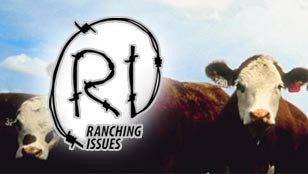
The Dakotan:
And now time for this week's edition of Ranching Issues. Here's Neil Roberts.
Neil Roberts:
Welcome to another edition of Ranching Issues. Our guest this week is Mountrail County Ag Agent Jim Hennessey. And Jim. Today, we are talking water quality, though quantity and quality are both important, right?
Jim Hennessey:
Correct. And most time when we talk about water quality, we're thinking about summer issues. This is a winter issue. And during the winter months, when it's cold and stuff, we need adequate quantity of water consumed by livestock. Most time, if they're not consuming adequate amounts, we can see as far as feed performance go down and so on as far as quality. Best way to start with that is to get a good water quality test. And there's a lot of good places you can do that. Get it back, interpret it, see what you got to work with.
Neil Roberts:
All right. Good stuff, Jim. And hey, we'll talk about things that affect that water quality when we come back.
The Dakotan:
You're listening to Ranching Issues with Neil Roberts on the Dakotan Network.
Neil Roberts:
With Jim Hennessey. Today, we're talking water quality on ranching issues. And Jim, how about specific things that affect water quality?
Jim Hennessey:
Well, some of the things that can really affect your water quality, for example, would be total dissolved solids. Anytime we get a lot of salts in our water and TDS gets basically above 3000 when you start getting a little bit alarmed. Anything above 5000 should not be consumed by any bread animals. And as far as with sulfates, that's another one. We get high sulfate water that can cause quite a bit of problems as far as night blindness and different things in certain parts of the country have higher sulfate levels. And as we see aquifers get lower, we see levels get higher. Another thing is making sure we get good quality water when we don't have good quality water. Animals don't consume like they should.
Typically, they should consume one to two gallons per 100 pounds of body weight.
Neil Roberts:
All right. Good stuff, as always. Thanks, Jim. And that will bring this report to a close until next time. I'm Neil Roberts.
The Dakotan:
You're listening to the Dakotan Network. Real, Honest, Local News.